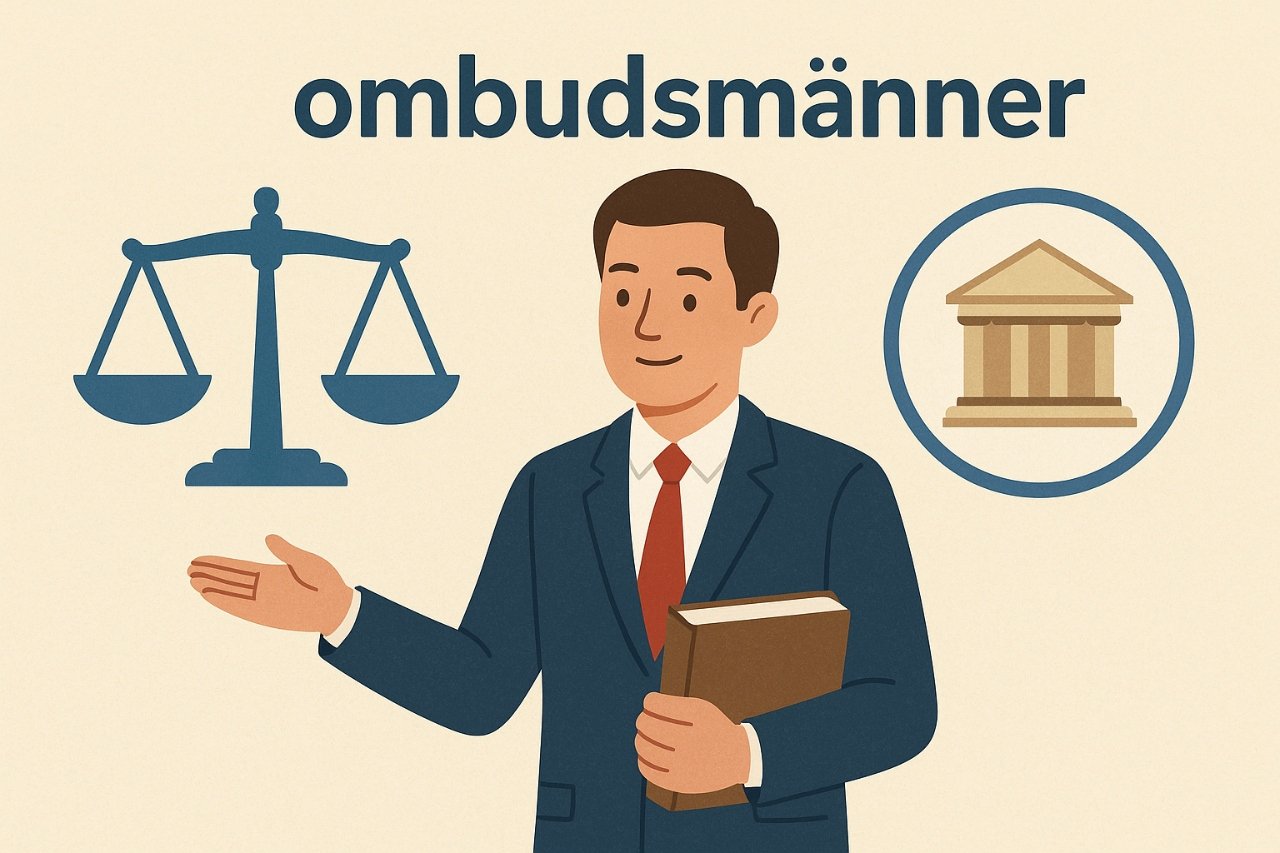The term ombudsmänner may sound unusual, but it carries great importance. These individuals serve as protectors of fairness, ensuring that citizens have someone to turn to when conflicts with powerful institutions arise. Their work impacts governments, businesses, schools, and communities. To make this easier to understand, this article explains the history, duties, and global influence of ombudsmänner in a way that a 9th grader can follow.
The Origin of ombudsmänner
The idea of ombudsmänner began in Sweden during the early 19th century. At that time, governments needed a representative to defend the rights of ordinary citizens. The Swedish Parliament created this position to supervise government actions and address complaints. Over time, the concept spread across Europe and then around the world. This shows how a single idea rooted in fairness gained international recognition.
The Evolution of ombudsmänner
While the original role focused on government oversight, ombudsmänner have evolved. Today, they are found in organizations, universities, corporations, and even media outlets. The evolution reflects society’s growing demand for accountability. In each setting, the role adapts to meet the needs of the people it serves. This transformation illustrates how institutions must adjust to maintain public trust.
ombudsmänner in Government
Governments use ombudsmänner to ensure fairness. Citizens can bring complaints about bureaucracy, slow services, or unfair treatment. Ombudsmänner then investigate and recommend solutions. Although they cannot make laws, their influence pushes authorities toward justice. By acting as neutral figures, ombudsmänner build trust between the public and state institutions.
ombudsmänner in Schools and Universities
Education systems also rely on ombudsmänner. Students may face issues such as unfair grading, discrimination, or lack of support. An ombudsman helps resolve these challenges by listening to all sides and finding balanced solutions. By promoting fairness, ombudsmänner strengthen learning environments where everyone feels respected.
ombudsmänner in Businesses
Companies benefit from ombudsmänner as well. Employees sometimes encounter problems like workplace harassment or unfair treatment. Customers may also experience poor service. Ombudsmänner step in to investigate complaints and guide organizations toward solutions. This prevents conflicts from escalating and helps businesses maintain credibility.
ombudsmänner in Healthcare
In hospitals and clinics, ombudsmänner play a critical role. Patients sometimes feel powerless when dealing with complex medical systems. Ombudsmänner ensure that patient voices are heard, and fair resolutions are pursued. By protecting rights and ensuring transparency, they improve trust in healthcare systems.
The Skills of ombudsmänner
To succeed, ombudsmänner require strong communication, listening, and problem-solving skills. They must also remain neutral, even when emotions run high. Empathy is essential because many complaints involve sensitive issues. Their ability to analyze information and propose fair outcomes makes them valuable in society.
The Cultural Importance of ombudsmänner
Different cultures highlight ombudsmänner in unique ways. In Scandinavia, the role is tied to democracy and transparency. In other regions, it connects to justice and human rights. Despite cultural differences, the main principle remains: ombudsmänner protect fairness by standing between citizens and institutions.
ombudsmänner and Human Rights
Human rights organizations often embrace the idea of ombudsmänner. These officials ensure that governments respect citizens’ freedoms and treat everyone equally. When abuses occur, ombudsmänner investigate and report findings. Although they cannot always enforce decisions, their influence pushes authorities to take corrective action.
Challenges Faced by ombudsmänner
Although their role is important, ombudsmänner face challenges. Some institutions may resist change or ignore recommendations. Others may lack resources to handle large numbers of complaints. Additionally, public awareness of their role is sometimes low. Overcoming these issues requires persistence, education, and collaboration.
ombudsmänner in the Digital Age
The digital age has expanded the work of ombudsmänner. Online complaints, digital harassment, and misinformation now require oversight. Ombudsmänner adapt by using technology to track cases and communicate quickly. This modernization ensures their relevance in a rapidly changing world.
The Global Influence of ombudsmäner
Today, ombudsmäner exist in nearly every region. The European Union has a central ombudsman, while many countries operate local offices. International organizations like the United Nations also appoint ombudsman figures to promote fairness. This widespread adoption shows the global trust placed in the role.
Environmental Issues and ombudsmäner
As environmental concerns grow, ombudsmäner are being assigned to oversee ecological matters. Citizens bring complaints about pollution, waste, or unsafe practices. Ombudsmänner respond by investigating and urging institutions to adopt greener policies. This proves their adaptability in addressing new global challenges.
The Future of ombudsmäner
The future of ombudsmäner looks promising. With society demanding more transparency, their role will likely expand further. Technology, environmental issues, and social justice movements will shape their responsibilities. Continued trust will depend on their ability to remain fair, adaptable, and strong advocates for justice.
Why ombudsmäner Matter
In every setting, ombudsmäner serve as guardians of fairness. They give people a voice when they feel unheard and provide institutions with guidance for improvement. Without them, many conflicts would remain unresolved, and trust in organizations would weaken. Their continued presence ensures that society stays balanced and just.
Conclusion
The history of ombudsmäner shows how a Swedish idea became a global force for fairness. Whether in government, education, healthcare, or business, they stand as neutral protectors of justice. Their influence will only grow as societies face new challenges. By understanding their role, citizens can appreciate how ombudsmäner shape a more balanced and fair world.

